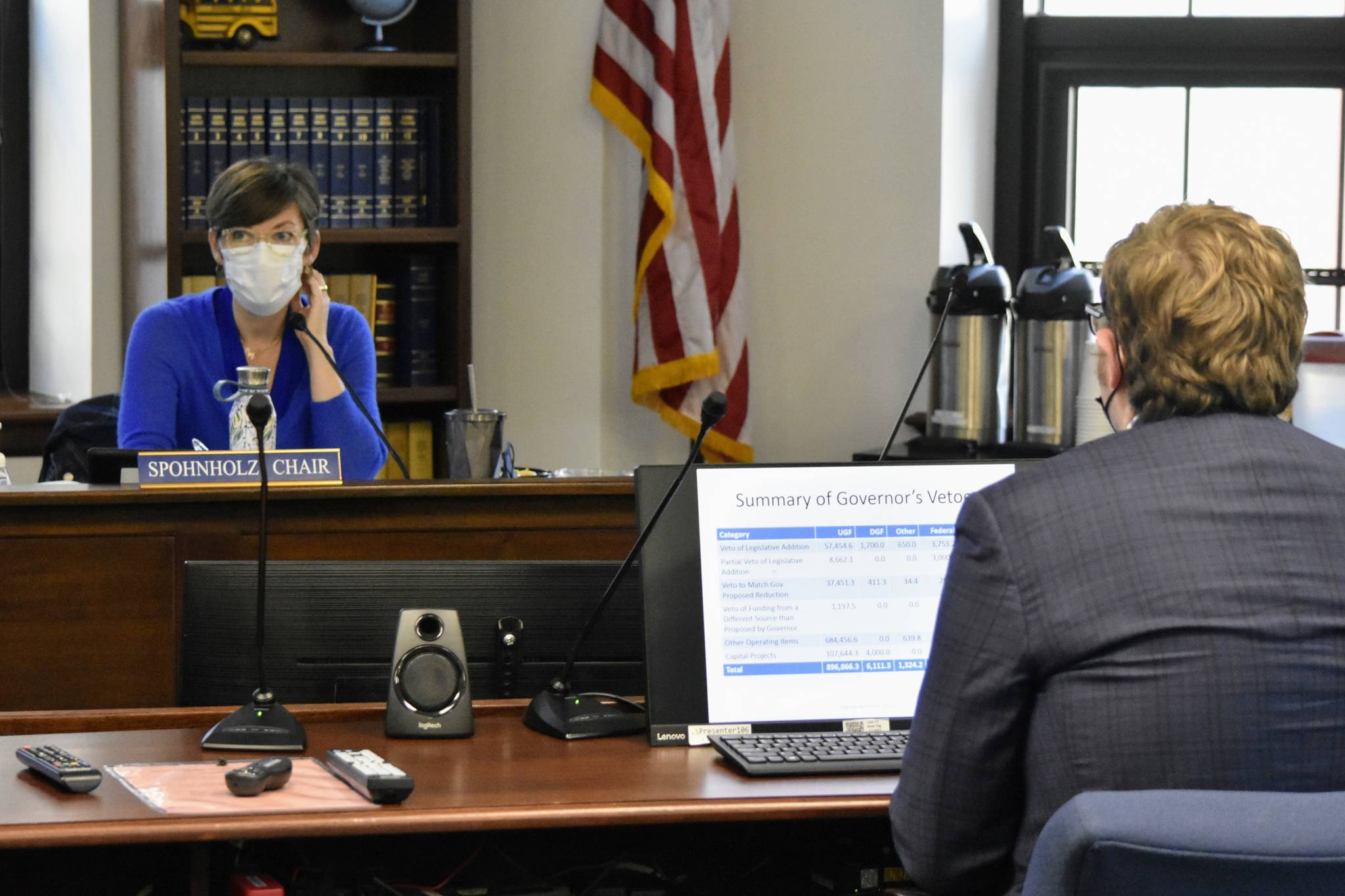Lawmakers say they’re committed to both completing the state’s budget and finding resolution on the state’s long-term fiscal problems, even if they can’t say when that might happen.
With appropriations bills in hand, the Alaska State Legislature has less than 30 days to try and complete the state’s budget and come to an agreement on comprehensive solutions to the state’s fiscal problems.
Deep divisions in the Legislature have left the state’s budget only partially funded, and last week Gov. Mike Dunleavy added an appropriations bill to the call of the special session allowing lawmakers to address that issue, including an amount for the Permanent Fund Dividend. But the governor and several legislative Republicans were hoping the current special session would be devoted to resolving the state’s ongoing fiscal deficit. It remains unclear if lawmakers will be able to achieve both those goals during this special session, but legislative leaders said they were ready to work.
“We’re going to get done what we can right now,” said Senate President Peter Micciche, R-Soldotna. “We’re all hear and who isn’t here is available. (The appropriations bill) helps us to finish the work of the last session and puts us in the place for people to continue to have conversations and work towards a fiscal resolution.”
In an interview with the Empire, Micciche said he couldn’t say if the Legislature would be able to complete both goals, but he hoped the special session would be productive enough lawmakers would be willing to call themselves into special session. Micciche said it is critical that lawmakers feel heard and involved in the process if any progress was going to be made.
A brief Senate floor session was held Monday, and a House Finance Committee meeting was delayed, then canceled as the leadership of the House Majority Caucus remained in deliberations.
Legislative Finance Director Alexei Painter gave presentations to the House Ways and Means Committee and the Senate Finance Committee with a summary of state accounts following the governor’s vetoes. That presentation also included a comparison of two appropriations bills, one from the governor and the other from the House Ways and Means Committee.
[PFD size up for debate in legislative session]
Dunleavy’s bill is based around the 50-50 formula the governor has suggested in his proposed constitutional amendments and would allocate a PFD of about $2,350. The committee bill would restore all funding cut by the governor’s vetoes except the PFD, according to Painter, and would provide a PFD of about $742.
But both plans require lawmakers to vote for a state accounting mechanism known as the reverse sweep which needs a three-quarter vote in both bodies to pass. That vote has traditionally been used as leverage by members of the minority but gained additional significance in 2019 when the Dunleavy administration added the Power Cost Equalization fund to the list of sweepable funds.
But an Anchorage Superior Court ruling earlier this month said those funds should never have been swept in the first place and order the money’s release. Still, funding for several critical state programs remains held behind the sweep which needs the support of members of the House Republican Minority.
House Bill 3004 is sponsored by the House Ways and Means Committee but committee member David Eastman, R-Wasilla, said at the meeting that was the first he had heard of the bill.
“If (the bill) is going to require the support of the minority, why was there no effort to consult with members of the minority?” Eastman asked.
Committee co-chair Rep. Ivy Sponholz, D-Anchorage, said Eastman’s comments were well taken and that the bill was meant as a proposal.
Last week, a legislative working group released its recommendations for resolving the state’s fiscal deficit, and legislative leaders said they were encouraged by the bipartisanship and the results of the working group.
House Minority Leader Cathy Tilton, R-Wasilla, said resolving the state’s fiscal issues is critical to her caucus and that she was encouraged by some of the recommendations from the work group. But Tilton also said her caucus was concerned at the pace of the session.
“Just based on where we are in this session, I have some concern we haven’t had much movement,” Tilton said in a phone interview. “The majority hasn’t put forward any of those policy (recommendations).”
• Contact reporter Peter Segall at psegall@juneauempire.com. Follow him on Twitter at @SegallJnuEmpire.


